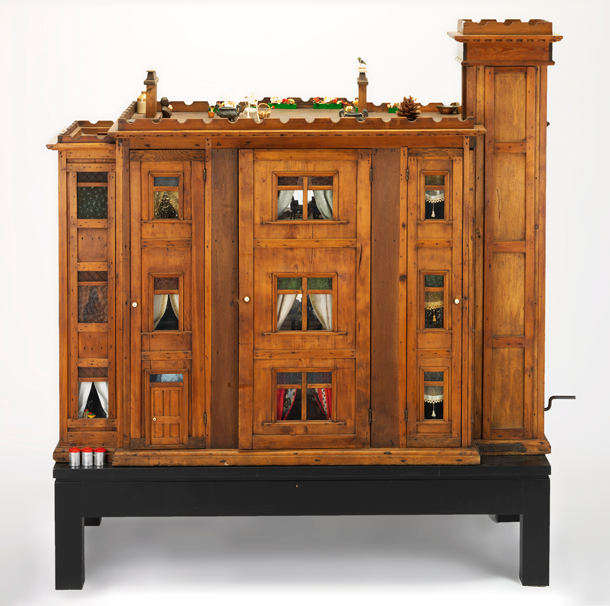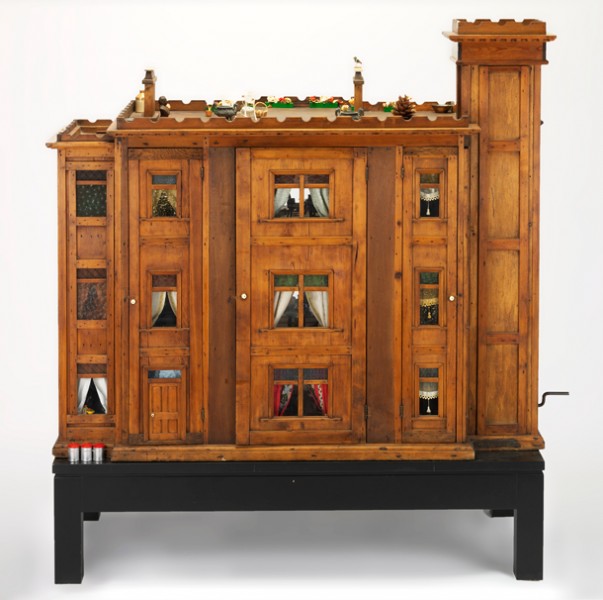
‘I don’t know what I’m going to be yet; whether I’m going to be important in myself or just married.’ Christine and Penelope Marwood divide their female acquaintances into sheep and goats: the goats get away, the sheep stay within the fold, and, if unmarried, ‘still girls in outlook and behaviour’ even at forty, and ‘still dressing on the allowance allotted to them at eighteen.’ The sisters dream ineffectually of being goats, but it is the late nineteen-thirties and, although things were changing, and daughters, even of ‘good families were breaking away in all directions’, going to universities, ‘on the films’, or ‘sometimes just going’, more typically the lot of the unmarried daughter, when her family could afford it, was to remain at home. Lacking the education thought essential for their brothers, learning what they could from schools ‘where the pupils were not encouraged to know too much, but where the tone was nice’, or from more or less inadequate governesses, for most girls importance was a somewhat idle ambition, and marriage not a certainty. For many of their class all that beckoned was an infantilised, more or less idle middle age, and the Marwood girls are more infantilised than most.
Christine is twenty, Penelope nineteen and they have never left the nursery, either emotionally or physically. Indulged rather than loved, they still share their childhood bedroom, and spend their days sewing and reading and dreaming in the old school room, where their old books clutter the shelves and in one corner the dolls’ house still stands. Meals are carried up to them on trays by, understandably, grumpy maids, and neither their widowed father, nor his unmarried artist-sister object nor show any inclination to adopt a more familial pattern, since they too prefer on the whole to keep to their own quarters, and Saunby, the Priory of the title, is large enough to accommodate their selfish eccentricity – large but cold and dark, and not only because of Major Marwood’s sparing use of the ancient electricity plant.
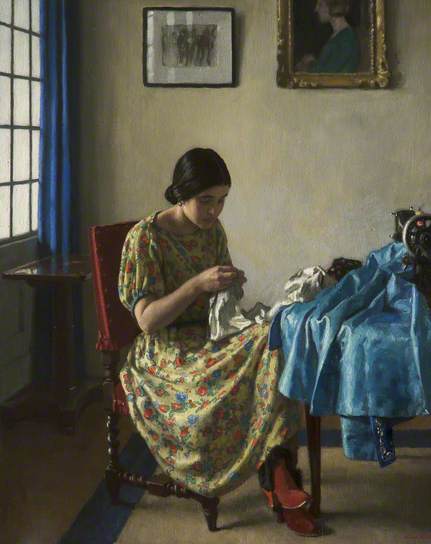
Dorothy Whipple paints the house and its occupants, upstairs and down, with short telling strokes and warm humour. ‘The servants’, she writes, ‘ lolled round the fire.’ Only lazy, unmotivated, bored and undervalued servants ‘loll’ behind the green baize door. Aunt Victoria, is an Artist, and thus above managing either house or servants. Buffalo heads, trophies of earlier travels and hunting triumphs, hanging on the stone walls of the hall, have beards of cobwebs in addition to their own.
While the dust has gathered in the house, the surrounding estate has shrunk, no game in the coverts, no horses in the stables, the woodland is overgrown and all that remains of the kitchen garden are antic stumps of Brussels sprouts. Francis Marwood, the proud young soldier who arrived at Saunby with a beloved wife and three small children, and every prospect of a bright future, is tall and handsome, fifty and bereft. ‘When death removed the mistress, it removed the retaining pin of the household. The pieces fell apart and so far had never been reassembled.’ For nearly twenty years, time at Saunby has stood still. The house and the Marwoods (apart from the girls’ brother Guy who had both the education and the wit to escape, to a career and a family of his own) have remained frozen in time. Ignoring both paternal and estate duties – bills are unpaid, and he shows little affection to his motherless daughters – the Major lives only for his cricket festival (and even that depends on an ex-miner, turned chauffeur, the charismatic charmer Thompson), while his sister daubs away at pictures that ‘could well have been reproduced in the competition corner of a children’s paper with prizes offered for those who could point out what was wrong’. Upstairs at Saunby there are no grown-ups.
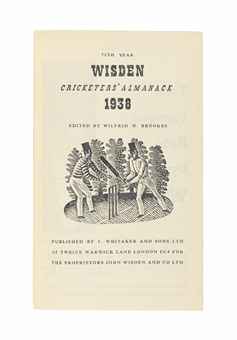
Change must come. Even the wilfully blinkered Major recognises that his daughters should be helped to flee the nest, if only to reduce the strain on the diminishing Marwood coffers. ‘Someone would have to see about getting them married,’ not him, not their father, but someone. ‘The household expenses must be cut down. The servants must be looked after. The girls must be looked after. He must be looked after.’ The answer: a suitable wife. His first wife had been lovely, ‘he was young, they were both in love’. But this would be different. Poor Anthea. What a basis for a marriage, and what a chasm lies between them, both in their ways emotionally crippled: he by class and upbringing, she, inadvertently, by her family – the plain, eldest child who has outstayed her time in the nest and reads unhelpful books on happiness. The Major doesn’t love her, she soon realises that, her step-daughters don’t want to be looked after, the servants don’t respect her. Anthea fails the suitability test, it is not a happy marriage, and she must abandon her girlish dreams, but, finding a staunch ally in her children’s nurse, she more than holds her ground, making alterations to Saunby that go far beyond the furniture.
There are many neatly interwoven threads in The Priory: love, or the lack of it, or the difficulty of expressing it; marriages , good and bad, marriages of the rich and of the poor; lost mothers, lost children; lost dreams, and the acceptance of loss. But most of all it seems to me a novel about change and about growing up. Dorothy Whipple takes her reader through something of the same process – lulling us into the gentle security of the eccentric upper class household, allowing us to hope that the major will be softened by marriage and fatherhood that the girls will find Mr Right, or nearly Right. Subtly and unexpectedly and without moralising she shifts her reader as well as her characters out of their comfort zone. This is a coming-of-age novel, the ‘bildungsroman’ at which she excels, and it works on several levels.
Overseen by Nurse Pye, the dusty detritus of Christine and Penelope’s childhood is cleared out of the nursery so that the girls who have long outgrown it but cling to its security and familiarity are forced to make way for a new generation, and confront their own futures. The novel opens and closes (almost) on Christine, the older, gentler, less selfish of the sisters, and, although she is not always centre stage it is essentially her story. A twenty year old child becomes a twenty three year old adult. She is compelled to make difficult and painful decisions , to reassess her relationships, and her responsibilities. Her growing up has started late and is accelerated by circumstances.
The Priory covers barely more than two or three years, two or three cricket seasons, years in which Europe was moving inexorably, if imperceptibly to Mumfordshire society, towards war and seismic changes were taking place in society, and the dust of crumbling conventions and assumptions was being swept away.
Women were finding their voice. Strong single women play pivotal roles in the novel: Miss Vanne, who is putting her son through Cambridge on the income from her beauty parlour, provides employment for the unemployable Christine; Nurse Pye, having put Saunby on track for a more secure future, when the mature Christine is wise enough to perceive her virtues and humble enough to appeal to her, saves her sick baby. Even Aunt Victoria proves strong enough finally to leave her childhood home and live independently and happily in a room over the village pub, painting, and selling, her dreadful paintings.
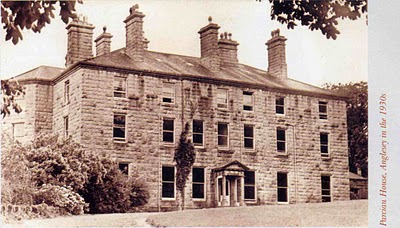
The land-owning class was losing its hegemony. The Marwoods are forced to recognise that the old money that has cushioned them for generations is exhausted. The tenants must come to the rescue of the landlord. The sale of Top Farm to the Spencers, whose natural ties are with Saunby’s ‘downstairs’, provides temporary respite. But it is the money and the wisdom of the parvenu that saves Saunby for the future. The Ashwells, Christine’s Lancashire factory owning parents-in-law, who, once she is ready to learn, teach her so much about family life and love, provide the Major with a utopian solution for the Priory, one that will bring together all those who are deemed capable of working for the common good. Even the wayward Thompson and his unpleasant wife are brought back into the fold. Penelope, still the self-centred child, is a notable absentee.
Sir James Ashwell quotes William Morris, ‘… do not let us sit deedless like fools and fine gentlemen, thinking the common toil is not good enough for us and beaten by the muddle …’
Major Marwood is grateful and happy, his boyish expectation that ‘something would turn up’ fulfilled, but it is hard to see him putting his shoulder to the wheel. The fine gentleman in him lingers on, and perhaps the muddle has been too much for him. Jobs are found for everyone else – it is a little disappointing that while Sir James plans to send his son to Agricultural college to learn about land management, Christine is to learn to make butter and cheese ‘and all that’!
